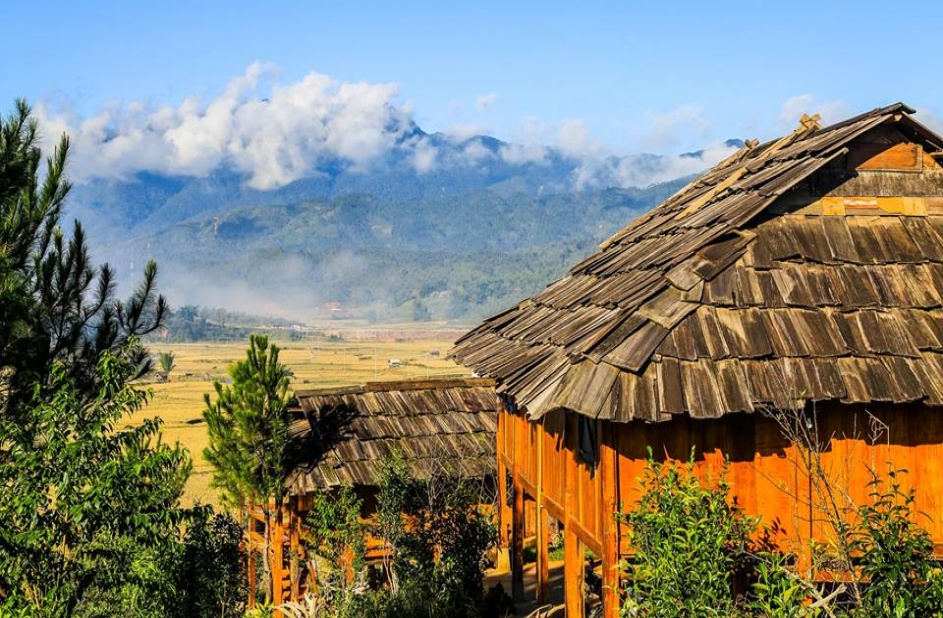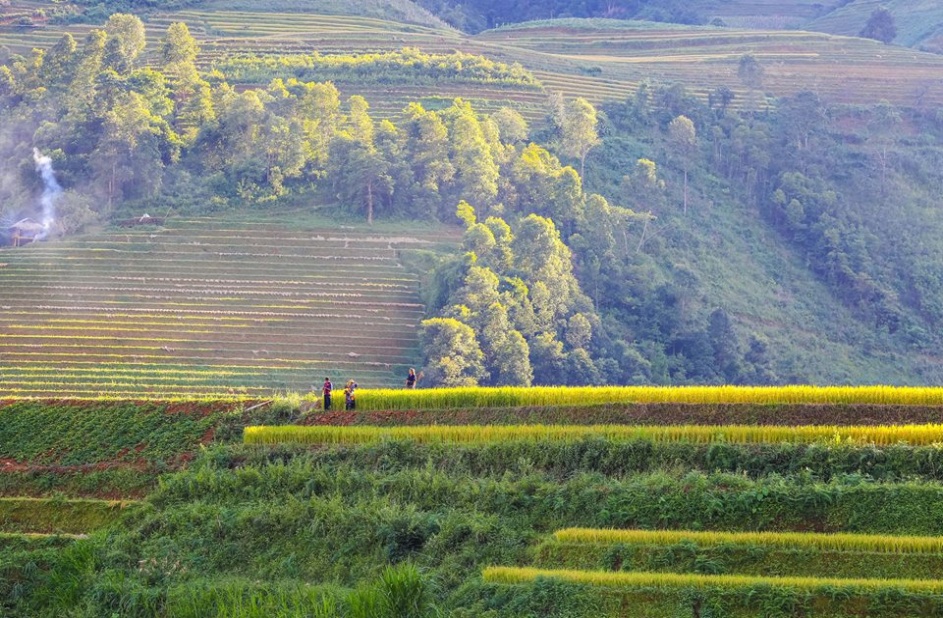Q&A with Nguyen Tri Dzung, General Manager of Mu Cang Chai Ecolodge
14th November 2017Far away from the chaos of city life, we had a talk with Mr Nguyen Tri Dzung, owner and General Manager of Mu Cang Chai Ecolodge, about his passions for the development of the local area and community through sustainable tourism.

Opened in July 2017, Mu Cang Chai Ecolodge is located in Hua Khat Village, in the Mu Cang Chai District of Yen Bai Province, Northwest Vietnam, which is famed for its terraced rice fields – some of the most beautiful in Asia and a national heritage site. The seven bungalows have been beautifully designed in the traditional style of houses on stilts, and elegantly decorated with neo-renaissance style furniture, wooden floors and comfortable amenities. This makes the lodge perfect for the travellers who yearn for authentic experiences in untouched mountainous areas.
Q) Why did you choose Mu Cang Chai as the location for your business?
I choose to locate my business here because Mu Cang Chai has a wildly primitive beauty. Everything here, both natural and human, is pure, untouched and perfect for many activities such as sightseeing, exploring, trekking and volunteering. Mu Cang Chai gives us a chance to live slowly, to embrace the peaceful natural beauty and be moved by the honest local ethnic people.

Breath-taking view from Mu Cang Chai Ecologde
Q) What sets your eco-lodge apart from the many other accommodation choices in the northern provinces of Vietnam?
The noticeable difference between an eco-lodge and other accommodation is the setting. Eco-lodges tend to be more remote, located in relatively pristine natural environments such as beaches, jungles and mountains. I decided to build Mu Cang Chai Ecolodge in Nam Khat, which is located 20km from the town and surrounded by terrace fields, offering a tranquil ambience where you can admire the breath-taking scenery from every room. However, it is also accessible from the main highway that connects Son La and Mu Cang Chai with Sapa, and the ethnic minorities’ villages are just 10 minutes’ walk away.
Moreover, the most significant element that sets Mu Cang Chai Ecolodge apart from others is our philosophy to develop sustainable tourism. The lodge is built without destroying the landscape or impacting the natural and cultural environment. We are as local as anything can get. With local staff and products, our aim is to offer genuine natural experiences to every guest whilst supporting wildlife conservation and creating economic opportunities for the local community.
Q) Which have been the greatest challenges in terms of operating an eco-lodge?
We faced many challenges when building the eco-lodge, especially when I wanted to reuse some building materials from the locals. It takes longer and costs more as we have to buy the old material from the Thai people and Hmong people then reuse and rebuild them for our own purposes. Furthermore, water and energy access and transportation of workers and materials is far more challenging in a remote mountainous location. But it’s worth it! These kinds of houses have been appeared for hundreds of years and became a part of the surroundings. If we try to build something new, we would ruin the landscape.
All these difficulties are only in the process of construction, but when it comes to operation, the biggest challenge has also been my greatest reward. I decided to work exclusively with local people, but my first challenge was to convince them that tourism can be advantageous. Since all employees are ethnic Hmong, teaching them the language and our service standards was a real challenge. Now, seeing our team being more and more qualified and benefiting from the business is really wonderful.

Q) How many different ethnic minority tribes inhabit Mu Cang Chai and what are the chances of guests being able to meet them?
About 90% of residents here are Hmong people, while Thai people account for about 8%. While Thai people build houses and live in lower area, Hmong people populate and cultivate the high hills. Mu Cang Chai Ecolodge is not located amongst them but it only takes 10 minutes to walk to these villages and throughout the day, our guests have plenty of opportunities to encounter and to observe the indigenous ethnic minority people going about their daily lives and working in the fields.
Q) In what ways does the eco-lodge support local communities in the area?
We work to ensure positive relationships with the locals. We employ them at fair wages and provide them with training courses. We also use local products and goods, in order to deliver economic benefits to the local community as well as supporting and taking part in local community’s long-term development initiatives; offering activities that help visitors conserve and appreciate local customs, whilst contributing to the local economy.

 +84 93 646 1068
+84 93 646 1068